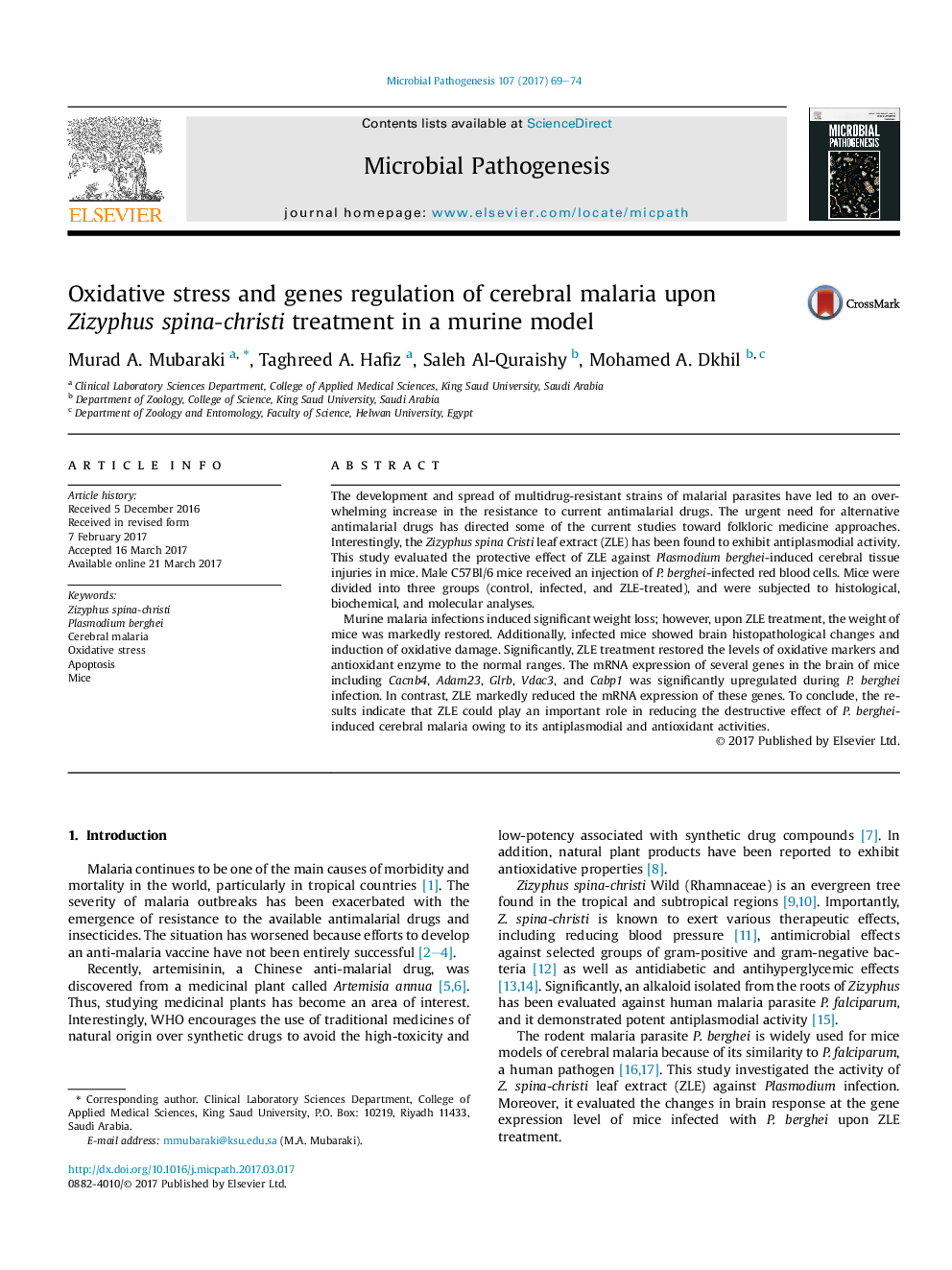| Article ID | Journal | Published Year | Pages | File Type |
|---|---|---|---|---|
| 5673913 | Microbial Pathogenesis | 2017 | 6 Pages |
Abstract
Murine malaria infections induced significant weight loss; however, upon ZLE treatment, the weight of mice was markedly restored. Additionally, infected mice showed brain histopathological changes and induction of oxidative damage. Significantly, ZLE treatment restored the levels of oxidative markers and antioxidant enzyme to the normal ranges. The mRNA expression of several genes in the brain of mice including Cacnb4, Adam23, Glrb, Vdac3, and Cabp1 was significantly upregulated during P. berghei infection. In contrast, ZLE markedly reduced the mRNA expression of these genes. To conclude, the results indicate that ZLE could play an important role in reducing the destructive effect of P. berghei-induced cerebral malaria owing to its antiplasmodial and antioxidant activities.
Related Topics
Life Sciences
Immunology and Microbiology
Microbiology
Authors
Murad A. Mubaraki, Taghreed A. Hafiz, Saleh Al-Quraishy, Mohamed A. Dkhil,
